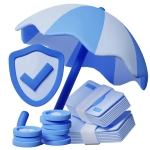
When it comes to protecting ourselves in the digital space, it doesn’t take studying for a master of cybersecurity online to understand that we need to stay on high alert at all times. Cybercriminals are becoming increasingly sneaky, and if we don’t keep our eyes open to the risks, we could all easily become yet more victims of malicious cybercrime.
And yes, the statistics are high: in a 2024 cybercrime report by the Australian government, it was found that in excess of as many as 20% of Australians had fallen prey to malware, identity crime, fraud and scams, all occurring in the digital space. The outcome? Just imagine: all of our precious personal data, sensitive information and private banking details falling into the hands of sneaky digital hackers to do with as they please, including – god forbid – leaking it to the ominous depths of the dark web. It’s the stuff of nightmares.
So, if we want to avoid being yet another cybercrime statistic, we need to first be aware of the risks. Once we understand how these cybercriminals work, we can take action to protect ourselves – by implementing the security measures that have become critical in our increasingly digitised lives.
Table of Contents
Understanding the Risks: Stay Aware and Alert
One gloomy Sunday evening, my elderly father was browsing the web – surfing the net, as he would say – and a strange ‘pop-up’ well, popped up. It promised my old dad an offer that seemed too good to be true: if he entered his credit card details, he could ‘buy in’ to Elon Musk’s shares – securing him guaranteed exponential growth in personal wealth as a result.
Now, my father is an educated man. However, having not had the same opportunity to grow up in the online era that his ‘digital native’ children have completed their schooling in, he is not savvy to the risks of cyber attack.
I digress: my father, sucked into the chance to share in Elon’s wealth, began filling in the form. It was only at the very last moment that he had the sense kicked into him: my mother, on observing his activity from the other side of the living room, angrily outburst: “You fool, stop that right now – you’re going to get hacked!” Naturally, this very promptly (and fortunately) dissuaded him from entering his payment details, which would no doubt have seen him exposed – sitting prey – to a vicious cyber attack on his bank account.
The point of this story? If we’re not aware or alert to cybersecurity risks, we too could be sitting ducks to potential cybercrime – every time we surf the net.
Protecting Ourselves: Security Measures to Implement
So, how do we protect ourselves? Here are some security measures we should all be implementing – stat;
Step 1: Secure Your Passwords
First, we need to make our accounts secure. We must protect our passwords by making them as personalised, unique, and difficult to guess as possible. We should always avoid using obvious password choices that could easily be hacked, like our birth date, for example, or license plate number. Instead, opt for random sequences of numbers, jumbled letters, and special characters. Essentially, our passwords should not be ones that anyone could figure out easily.
Step 2: Keep Your Personal Details Close
Next, we need to keep our sensitive information to ourselves. If someone is asking for our banking details, we must ask ourselves, “Why do they need my payment information?” If it seems dodgy, it probably is.
We should also avoid sharing any kind of personal information on social media and protect our privacy by securing our profiles with private settings.
Step 3: Beware of Phishing
We’ve all been recipients of dodgy emails in our spam folders. But concerningly, some of them appear more convincing than others. The dodgy email in question may be perfectly formatted to look like it’s come from the bank, with an identical logo and branding to boot.
Don’t be fooled. Read the email carefully, and also, be sure to check the sender’s email address. If it’s a scam, it likely won’t be coming from a trusted or recognisable email domain.
Step 4: Trust No One
Finally, if we receive an offer that seems too good to be true – like my father’s promised foray into trading Elon Musk shares – it probably is. The reality is that we simply can’t trust anyone online. We must always be on our highest alert, and acting like everyone is out to get us – it’s a fair chance they actually are.
With cyber attacks on the rise, it’s essential to arm ourselves against them.
By securing our passwords, protecting our personal information, being alert when receiving emails, and above all, staying vigilant online, we can avoid falling prey to cybercrime.
RELATED ARTICLES
Latest Articles
 People Over Papers: Protecting Immigrant…In General
People Over Papers: Protecting Immigrant…In General Budget Vs. Quality: Comparing Pre-school…In Business
Budget Vs. Quality: Comparing Pre-school…In Business Instagram IP Address Blocked: How Long I…In Technology
Instagram IP Address Blocked: How Long I…In Technology Fast, compliant global background screen…In Tech Startups
Fast, compliant global background screen…In Tech Startups Balancing Investment and Protection with…In Insurance
Balancing Investment and Protection with…In Insurance Japan Tour Packages for Travellers Who W…In Tips
Japan Tour Packages for Travellers Who W…In Tips Getting What You Need: Align Your Action…In General
Getting What You Need: Align Your Action…In General Preventing Dust Damage With Proper Lapto…In Gadgets
Preventing Dust Damage With Proper Lapto…In Gadgets




